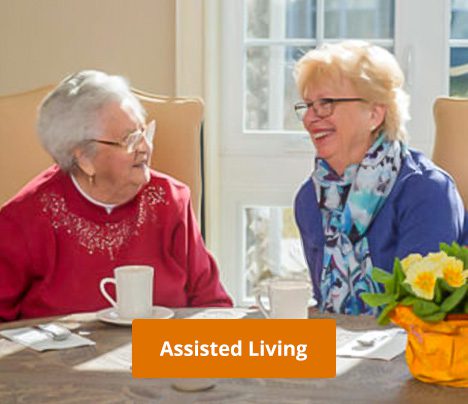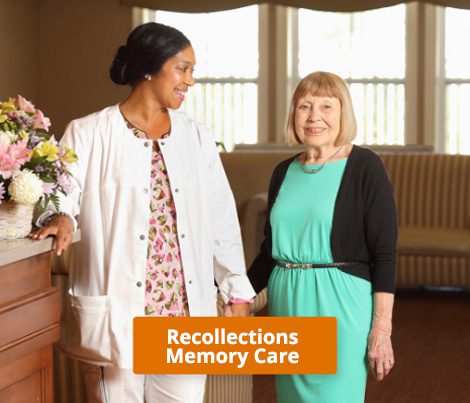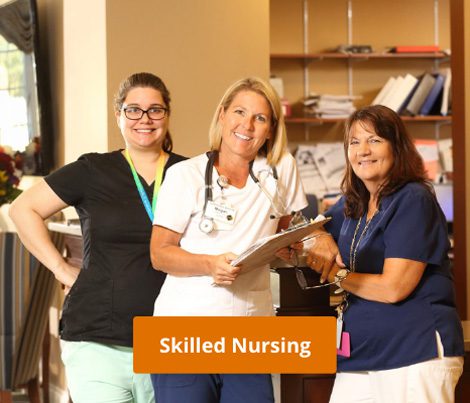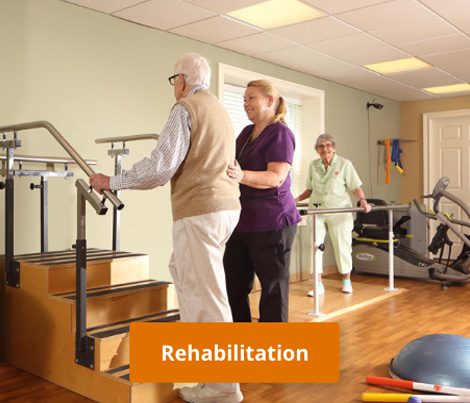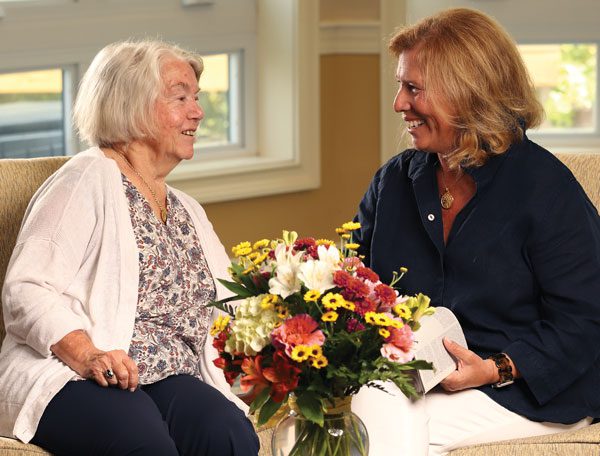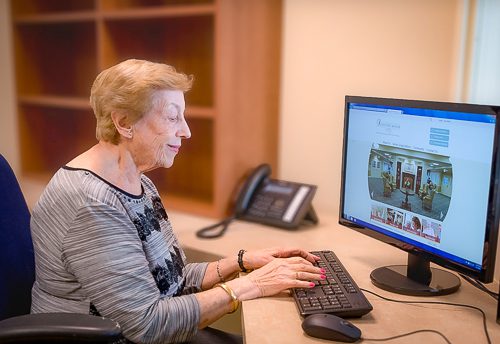Get the Facts about Alzheimer’s Disease
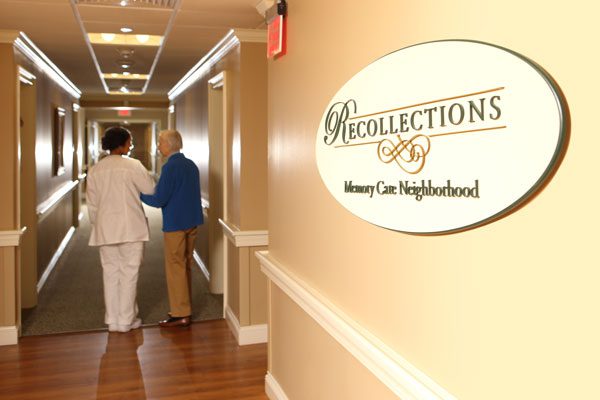
Learn how Alzheimer’s Disease is diagnosed, plus answers to frequently asked questions.
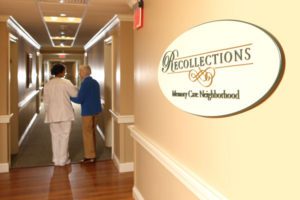 Here at Sunnyside Manor, we understand the unique challenges that caregivers face. Little changes in a loved one’s memory or behavior can set off alarm bells. Perhaps you’ve noticed they’ve become more forgetful lately, or their home is less put-together than usual. Is it Alzheimer’s Disease, or are they “just getting older”?
Here at Sunnyside Manor, we understand the unique challenges that caregivers face. Little changes in a loved one’s memory or behavior can set off alarm bells. Perhaps you’ve noticed they’ve become more forgetful lately, or their home is less put-together than usual. Is it Alzheimer’s Disease, or are they “just getting older”?
It may be time to see their doctor to find out. Getting an accurate diagnosis is important to ensure that your loved one gets the right care, and your family can prepare and plan for the future.
Although it can feel overwhelming, knowing what to expect can help. In recognition of World Alzheimer’s Day, we’re offering answers to some frequently asked questions about Alzheimer’s Disease, as well as information about what to expect when seeking a diagnosis.
This blog is for informational purposes only. It is not intended to diagnose or recommend treatment. If your loved one has experienced a sudden or significant change in mental status, please seek medical attention right away.
What is Alzheimer’s Disease? What is the difference between Alzheimer’s Disease, Dementia, and Alzheimer’s Dementia?
You may have heard terms referring to Alzheimer’s and dementia used interchangeably. While they often refer to the same symptoms, understanding the difference is helpful when communicating with physicians and health care workers.
Alzheimer’s Disease is a brain disorder that slowly damages memory, the ability to think, and eventually causes physical difficulties as well. It is very common in the U.S. with over 3 million cases diagnosed each year.
Dementia is an umbrella term used to describe cognitive impairment, including memory loss, impaired decision making, and mood changes. Dementia can have many causes, including Alzheimer’s Disease, Parkinson’s Disease, stroke, long-term substance abuse, and many others.
Alzheimer’s Dementia refers to the dementia caused by Alzheimer’s Disease. It refers to symptoms such as progressive memory loss, behavioral and mood changes, and impaired decision making.
How do I know if my loved one has Alzheimer’s Disease?
There is not one definitive test for Alzheimer’s Disease. Instead, your loved one’s physician will diagnose Alzheimer’s Disease by evaluating symptoms and ruling out other causes.
Signs and symptoms of Alzheimer’s Disease include short-term memory loss, mood and behavioral changes, and sleep disruptions. Learn more about the warning signs of Alzheimer’s Disease here.
What to Expect
When you see your loved one’s physician, they will review your loved one’s medical history and ask questions about symptoms. Be prepared to answer a lot questions, and have an up-to-date list of their medications (including over-the-counter). The doctor will want to know about any changes you’ve noticed. They’ll perform a physical exam and likely recommend additional tests.
There are two types of tests that are commonly recommended: tests to rule out other causes, and cognitive tests to assess the level of impairment.
Tests to Rule Out Other Causes
There are many conditions that can cause Alzheimer’s-like symptoms, including reversible conditions such as stress, depression, sleep apnea, and reaction to medications, as well as more serious conditions such as a stroke or Parkinson’s Disease.
Following are some of the tests that your loved one’s physician may perform or recommend to rule out other causes.
- Neurological Tests – Your physician may test reflexes, eye movement, speech, and muscle tone for evidence of a past stroke.
- Laboratory Tests – Your physician may recommend laboratory tests (blood or urine samples) to help rule out causes such as a vitamin deficiency, infection, or thyroid condition.
- Brain Imaging – Brain imaging (an MRI or CT scan) can show evidence of other conditions, such as a past stroke or a tumor. A brain scan may also show changes to the brain consistent with Alzheimer’s Disease. However, there is overlap between normal age-related changes and Alzheimer’s Disease, so this is not definitive.
Cognitive Tests
Your loved one’s physician may also recommend “mental cognitive status” tests to assess your loved one’s level of impairment. These tests might be very brief, or more lengthy. The tests might include tasks such as remembering a series of objects after a few minutes or drawing a clock face. Tests like these help determine whether further evaluation is needed.
What should I do if I receive an Alzheimer’s Diagnosis?
Alzheimer’s Disease can be managed, but unfortunately it cannot be cured. Talk with your loved one’s physician about the prognosis. Some medications are available to help maintain cognitive function longer and delay further onset of symptoms.
An Alzheimer’s diagnosis also means that it is time to start planning, and start making decisions about what to do if or when your loved one is no longer safe at home.
How do you know if your loved one is no longer safe at home? Learn more here.
For some families, that may include a move to a senior living community in order to maximize their loved one’s independence while keeping them safe and supported by caring helpers and peers.
When you have questions about senior living, our experts are here to help. Contact us today to learn more about options available for those with mild, moderate, or severe memory impairment.
Learn More About Why Families Rely On Sunnyside Manor
When it is time to make decisions about senior living, we are here to help. Sunnyside Manor offers assisted living, memory support, and skilled nursing and rehabilitation. Learn more about Sunnyside Manor’s resources for caregivers. Whether you’re looking for short-term support or a longer-term plan, begin with our “Getting Started” guide. Please call us at 888-696-2052 to speak with a senior living expert.
Sunnyside Manor, located in Wall NJ, is the area’s premier senior living community. It features three distinctive neighborhoods: Independence ‘Plus’ Assisted Living, Recollections Memory Care and Skilled Nursing and Rehabilitation.

